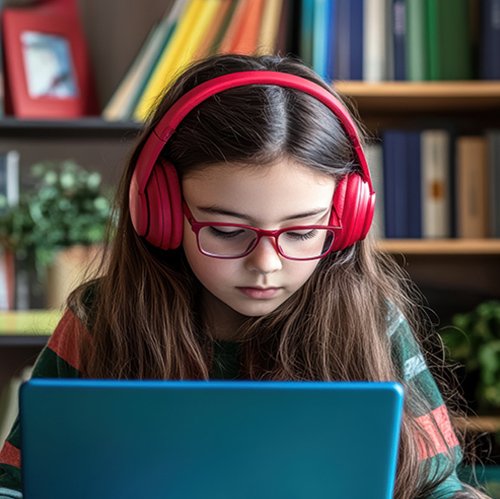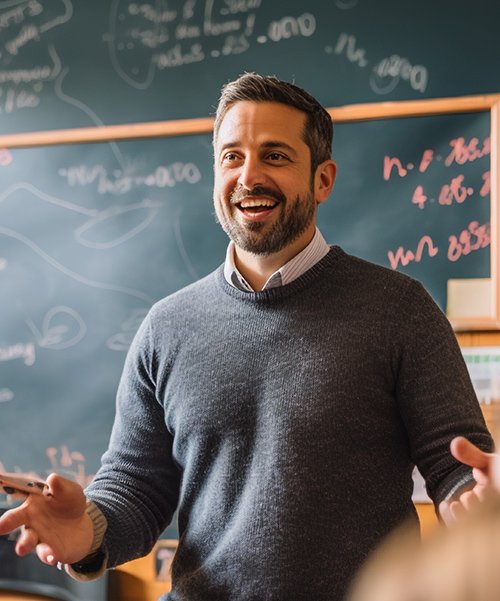Learning Behaviours
Learning behaviors are a set of attitudes and actions that empower students to become more effective and resilient learners. They are categorized into four main areas: Resilience, Resourcefulness, Reflectiveness, and Reciprocity.
This involves being able to persevere through challenges, learn from mistakes, and maintain a positive attitude even when faced with difficulties.
Examples: Persevering with a difficult task, managing distractions to stay focused, and being able to recover from setbacks.
This involves thinking about one’s own learning process, identifying strengths and weaknesses, and making adjustments to improve learning.
Examples: Asking for help when needed, using different learning resources, and adapting learning strategies to suit different situations.
This involves being able to persevere through challenges, learn from mistakes, and maintain a positive attitude even when faced with difficulties.
Examples: Reflecting on what has been learned, identifying areas for improvement, and setting personal learning goals.
This emphasizes learning with and from others, valuing different perspectives, and collaborating effectively.
Examples: Engaging in discussions with classmates, sharing ideas, and actively listening to others’ perspectives.
In essence, learning behaviors are about:
- Developing a growth mindset, where students believe they can improve their skills and knowledge through effort and persistence.
- Encouraging self-regulation, where students take ownership of their learning and manage their own learning processes.
- Promoting social and emotional intelligence, where students can understand and manage their own emotions, empathize with others, and collaborate effectively.
By fostering these learning behaviors, we aim to create students who are not only academically successful but also confident, adaptable, and lifelong learners.
It is about creating a culture that systematically cultivates habits and attitudes that enable young people to become better learners; face difficulty and uncertainty calmly, confidently and creatively.
It engages students consciously with the ideas and processes of their own learning in the knowledge that learning itself is learnable.
Developing learning behaviours

Students who are more confident of their own learning ability learn faster and learn better. They concentrate more, think harder, and find learning more enjoyable. They do better in their tests and they are more satisfying to teach.
Learning behaviours prepare youngsters better for an uncertain future. At Oppimista we are educating not just for exams but for lifelong learning. To thrive in the future, it is not enough to leave school with exam certificates. Students need to have learnt how to be tenacious and resourceful, imaginative and logical, self-disciplined and self-aware, collaborative and enquisitive.
To prosper in the learning age, we must learn to embrace uncertainty with robust self-confidence, and approach the future with curiosity and optimism at Oppimista.
In essence, learning behaviors are about:
Oppimista schools provide a clear direction for an exciting learning journey; it:
- Recognises that effective learning depends on qualities of attention and emotional reactivity; of thought and imagination; of reflection and self-awareness; and of sociability and relationships.
- Respects the complexities of science and resists easy simplifications, slogans and gimmicks.
- Views teachers as learning-power coaches who explore and extend students’ learning-to-learn behaviours.
- Infuses the development of learning habits and skills into curriculum content.
- Develops a language for learning throughout the school.
Attends to the kind of language used to frame activities and comment on learning. - Encourages learning challenges that students can get their teeth into - real, interesting and hard.
- Involves teachers in seeing themselves as learners about learning: taking time to think and ask questions about learning, testing out claims of their own, and customising ideas for local conditions and students’ current interests.
- Infects school life beyond the classroom, linking the professional world of teachers and the school’s relationship with its community.
- Sees education as a preparation for a learning life, with optimism that this can be pursued without a revolution — or at least with only a quiet, local, one.
Learning skills for life

Not all youngsters are going to do well in exams; that is a statistical certainty. So there has to be another outcome that is useful and relevant. Our society’s notion of ‘ability’ has been too closely linked to academic achievement, and to the assumption that some youngsters have got a lot of that sort of ability, and some not very much. We think that real-world intelligence is broader than that, that it is not fixed at birth, but is something that people can be helped to build up.
This aim is particularly relevant in societies, like ours, that are full of change, complexity, risk, opportunity, and individual responsibility for making your own way in life. In the swirling currents of today’s world, many youngsters are at sea and that makes them anxious, angry, confused, and vulnerable. This involves helping young people discover the things that they’d really love to be great at, and to strengthen the will and the skill to pursue them.
